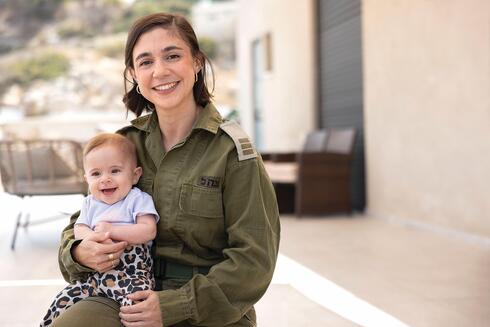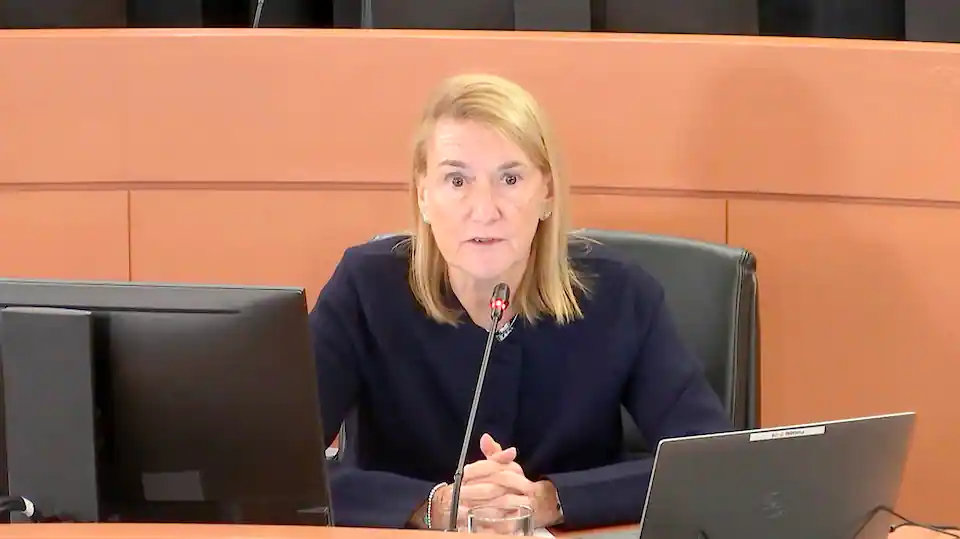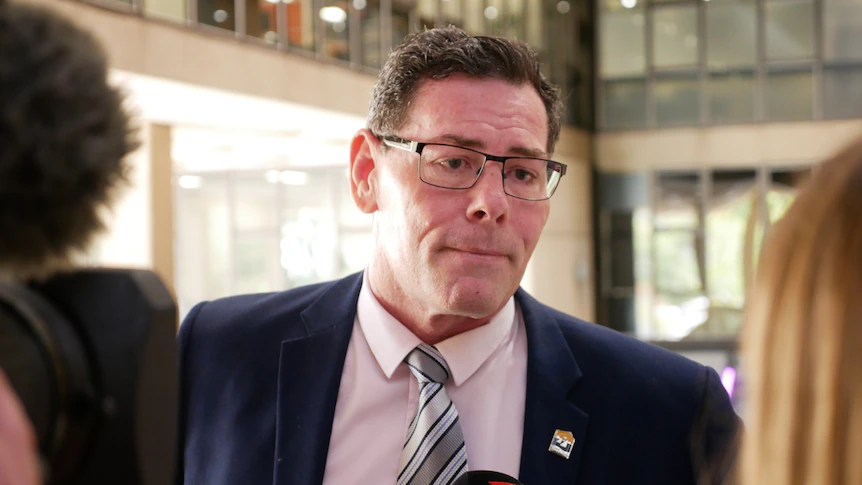‘I told him someone in our house had to serve’: Wife of wounded officer returns to reserves, even while pregnant
By Miri Ben-David Livi
Copyright ynetnews

On Simchat Torah, the day the Iron Swords war broke out, Roni Raffeld Bluth of the settlement of Tzofim in the northern West Bank thought it was reassuring that her husband had been called up for reserve duty in the north rather than the south. Two days later, she was informed that he had been seriously wounded in a clash with terrorists on the Lebanese border, in the same incident in which Lt. Col. Alim Abdallah, deputy commander of the 300th Brigade, Sgt. First Class Jawad Amer and Master Sgt. (res.) Gilad Molkho were killed. Until then, Roni, 35, worked as a project manager and was raising three children: Noam, 10, David, 7, and Itai, 4. Since then, a fourth child, Or, now six months old, has been born. Her husband, known by his nickname “Pitsi,” 38, worked at the Prime Minister’s Office. “We’re talking about the very first days of the war, when casualty officers were visiting many homes and there wasn’t yet a proper procedure in place to notify me of the injury,” she recalled. “Pitsi has seven brothers and one sister. Four were called up to reserves, and two are career soldiers. Two of his brothers came to tell me what they knew and drove me to him at the Galilee Medical Center in Nahariya. The first words I heard from them when they told me about the severe injury were just two: ‘he’s fine.’ All the way through, I clung to that word, ‘fine.’” Pitsi was shot from just a few feet away, the bullet entering beneath his nose. It shattered his jaw and lodged vertically in a vertebra in his neck. “The injury was considered severe, and the great miracle was that there was no damage to the spinal cord. He has a vertebra that will never be able to heal,” she said. “In the first few months, his jaw had to be locked to allow recovery. Removing the bullet was an ordeal in itself. He was immobilized with a neck brace for about four months. He spent nearly a month at the hospital, where the care was beyond words, and then went through five grueling months of rehabilitation at home.” Is there a moment you remember as particularly hard? “The first time I cried was when Pitsi woke up and I had to tell him that Gilad, his soldier, had been killed. That was very sad.” What is Pitsi’s condition now? “He is awaiting another series of surgeries, but he doesn’t complain or talk about the pain. He went back to work not long after rehabilitation, because that’s just who he is — he puts things behind him and doesn’t make a fuss.” And what was it like for you throughout the hospitalization and rehabilitation? “First of all, many in our community had been called up. That day, I took time off to be with the kids. It was, after all, the start of the war those were days of shock, and we needed to get our bearings. When Pitsi’s brothers came to inform me, they explained that my parents were on the way to be with the children and that I should quickly pack a bag to go to the hospital in Nahariya. I’m very practical, and I remember telling myself, ‘It’s cold in the hospital, I need to take a sweater.’ So I hastily packed a bag, called each of the kids into the room one by one, and explained what had happened. I acted as though I had been mentally preparing for this moment my entire life.” When Dad is in a wheelchair For the month that followed, Roni stayed constantly by her husband’s side, while family and friends helped care for the children at home. “We couldn’t leave Pitsi alone for a moment because of the risk of choking — his jaw was locked shut. “We had help from his unit. They weren’t called up for reserve duty at first, so instead they rallied around him. They even drew up a watch schedule, just like in the army. I wasn’t worried, because those words — ‘everything is fine’ — kept echoing in my head, giving me perspective compared to everything else going on around us. For four months, he needed 24/7 care. From his perspective, it was possible to ‘loosen the reins,’ but I certainly didn’t let go. At first, his only way of communicating with people was by handwriting. He couldn’t speak.” What other consequences did his injury bring? “The injury created new daily challenges, from the smallest things — like who could watch Pitsi while I took the kids to school — to living with a father in a wheelchair, wearing a neck brace, with his jaw locked and a tracheotomy tube at his throat. Children aren’t supposed to see their father like that. “One day, we even decided to take the kids together to their schools, and he collapsed right in front of me and the children. An ambulance came and rushed him to the hospital. It was difficult for everyone, especially the children. But that’s when I learned something important: the way we respond to situations is how our children learn to respond. If we panic, they’ll be afraid. If we stand firm and show confidence, they’ll find strength within themselves. The way we choose to face challenges is the path our children will walk. “It isn’t easy that they didn’t get to experience that moment of joy, when a father comes home from reserve duty in uniform and picks them up from school to the tune of music. Instead, they saw him battling pain and rehabilitation. But even that is a life lesson — to see their father rise from the lowest place and choose to keep moving forward.” Weren’t you concerned that he might also have post-trauma, an injury less visible? “I know him well and I checked all the time. The feeling all along was that, emotionally, we could be calm. Of course there are different struggles. For example, I wish he would say out loud that he’s in pain, not just to the doctor, because it really does hurt. He took a bullet to the face, and that’s no joke. “The hostages were the reason I decided to enlist. That’s what I kept in front of my eyes the whole time I was there. When they announced that Shiri, Ariel and Kfir Bibas had been murdered in captivity, it broke me on a personal level, not just a national one. That’s why I drove south every morning, why I often stayed for night shifts.” “When he was injured, I remember women making jokes that they wished their husbands would be wounded and come home, because it’s unbearable to live with the uncertainty and the fear. I understand where those comments come from, but of course it’s not like that. It just shows that in society, there isn’t always an understanding of what it means to be the wife of a wounded soldier.” And what does it mean? “Being the wife of a wounded soldier means your life turns upside down in a moment, without warning. It means the war doesn’t end the day the battle is over — it comes into the house, into the routine, into every breath. “It means being the caregiver, the quiet partner, the first and sometimes only line of support. It means carrying the injury — both physical and emotional — even when it’s not your own, while finding the strength to hold the home, the children and yourself together. “Above all, it means living a reality that is mostly invisible, rarely spoken about, yet always present — every day, in every family that has been hurt.” ‘I said: Take me to reserve duty’ When Pitsi’s neck brace was finally removed, about four months after his injury, and he was able to drive again, it marked a milestone — a sign of regained independence. Then Roni dropped her own bombshell. “I told him there was no way our home would be without someone doing reserve duty. It was the call of the hour.” “The hostages were the reason I decided to enlist. That’s what I kept in front of my eyes the whole time I was there. When they announced that Shiri, Ariel and Kfir Bibas had been murdered in captivity, it broke me on a personal level, not just a national one. That’s why I drove south every morning, why I often stayed for night shifts.” How did Pitsi react? “He wasn’t surprised, because that’s the spirit in our home. I had served in the standing army, as a company commander at Havat HaShomer in the Education Corps. We both grew up in religious Zionist families. Our brothers are fighters. It matters to us. I called each of his brothers and said, ‘Take me to reserve duty,’ until one of them found a way to place me in a brigade. In February 2024, after many years, I put on the uniform again as an operations officer.” What did you do in that role? “The operations officer is the beating heart of operational activity — gathering the intelligence and operational picture, coordinating forces in the field and keeping direct contact between commanders and soldiers. It’s a demanding, dynamic role that requires being on alert 24/7.” That wasn’t your job in regular service. Who trained you? “I learned on the job. You can’t explain the feeling of putting on the olive-green uniform during wartime, with my children watching me. There was a moment when one of them asked: ‘Mom, if you get hurt, will we also come visit you in the hospital?’ Of course, I explained and reassured them. Honestly, I’m sure I would have done this at some point even without Pitsi’s injury.” Didn’t you feel guilty about enlisting while your husband was recovering at home and would naturally have more work with the kids? “Of course I did. It wasn’t a simple step. There was a big dissonance: on one hand, the fear that by going to reserves it might seem like we were ‘moving on’ from the injury, and that was hard to let go of. On the other hand, my decision to serve also gave Pitsi validation for his own independence, his ability to stand on his feet, function and carry the daily load. It was a moment of trust — in him, and in us as a family.” Pregnant and armed A few weeks after beginning her reserve duty, Roni became pregnant. “It was clear that life goes on, and part of that is bringing new life into the world. The beginning was tough, with nausea — I was in uniform and couldn’t tell anyone — and like any pregnant woman. I constantly needed the bathroom, but I managed. Many people were surprised to see a pregnant woman carrying a weapon.” Did you consider ending your reserve duty because of the pregnancy? “No. At a certain point, I found myself at home, with nothing on the horizon, and I felt I had to continue. They told me another brigade was looking for an operations officer, so I joined there. From May 2024 until January 2025, I served continuously, until they politely told me that a woman in her ninth month of pregnancy on the Syrian border was less than ideal.” And six months ago, you gave birth. “Or was born at Meir Medical Center in Kfar Saba. That was the same ICU where Pitsi had been transferred from Nahariya two days after he was wounded, when the situation on the northern border was heating up. It was an incredible full-circle moment for us.” Could your enlistment have been a kind of escape from home, given the difficult maneuvering between a wounded husband and young children? “It’s interesting you use the word ‘maneuvering.’ Maybe this is the moment to say something about the wives of reservists who stay home to maneuver everything while their husbands maneuver war. I take my hat off to them. Their maneuvering is different, of course, but it also carries very complex and difficult aspects. “When he was injured, I remember women making jokes that they wished their husbands would be wounded and come home, because it’s unbearable to live with the uncertainty and the fear. I understand where those comments come from, but of course it’s not like that.” “From the moment Pitsi was wounded, I had a role — being there for him. That was my mission, my way of taking part in the national effort. Once he was back on his feet, I realized I was no longer part of that effort in the same way. I couldn’t imagine myself returning to ordinary routine without contributing in another way. For me it was clear that my contribution would be through reserve duty.” Did you continue serving after giving birth? “I still get called up occasionally, but for reserve duty that suits a new mother. I can come and go, nurse, and manage to balance it.” And your previous job? Did you return? “No. Caring for the home, for Pitsi and for the children didn’t allow me to go back to work.” Excited to be their microphone In recent months, Roni has been leading an independent project called Alumot Krav (Battle Lights), a podcast where she interviews the wives of soldiers wounded in the Iron Swords war. How did it start? “First of all, I needed to tell my own story. The first days of the war were very tense, when we were also worried about my brother, a paratrooper who was stationed that Saturday at Nahal Oz and, thank God, survived. Pitsi’s story is at the center, but when I tell it, it becomes holistic — because every wounded soldier has an entire system around him: a family, friends, circles of support. “It’s not just about giving voice to the families, but also about connecting with people who don’t experience this reality and can’t truly understand it until they hear it firsthand. This is an Israeli reality. I want to stress that I am part of a group of women who live this difficulty every day. I ‘got lucky’ with a somewhat different reality — because Pitsi is in rehabilitation that allows him to return to functioning. You could say I got him back, and I even had the privilege of enlisting for reserve duty. But many women live a far harder, more complicated reality. “I’m excited to be their microphone. The goal of my podcast is to amplify this female voice and give it space it hasn’t had until now. I’m part of a WhatsApp group of wounded soldiers’ wives called ‘Iron Friends,’ and from there, I also learn things I didn’t experience myself. These women go through enormous upheaval, and yet they continue to hold the home and the children together. This voice exists among us — but it’s invisible. To me, it’s a voice that deserves to be heard, and I see myself as the messenger who broadcasts it. “Every episode of the podcast is not just a personal story, but a building block in the collective memory and national resilience. When you follow, listen, share or support, you are telling the wives of the wounded: we see you, we hear you, you are not alone.” Do you feel it has a therapeutic dimension? “The women who shared their stories said the podcast gave them space to process their emotions. I believe that when the voices of wounded soldiers’ wives are heard, something in our society changes. For me, it’s completely therapeutic to sit and talk with them. But I always remember that I’m not the hero here. I’m not the story. The work — including recording the podcast — gives me strength and adrenaline. It’s my way of helping preserve the memory of this war, and my vision goes further.” Meaning? “Not to stop at a podcast, but to create ways for women to share their voices through art, writing, music, photography, slam poetry and more. Right now, I’m building a website that will provide a platform for the wives of the wounded and for anyone who wants to collaborate — whether by hosting events, running workshops or offering professional support in therapy and trauma. “Until now, the podcast has been funded entirely from my own initiative, including the financial investment. But I know the real power lies in building a broad community around it.”



